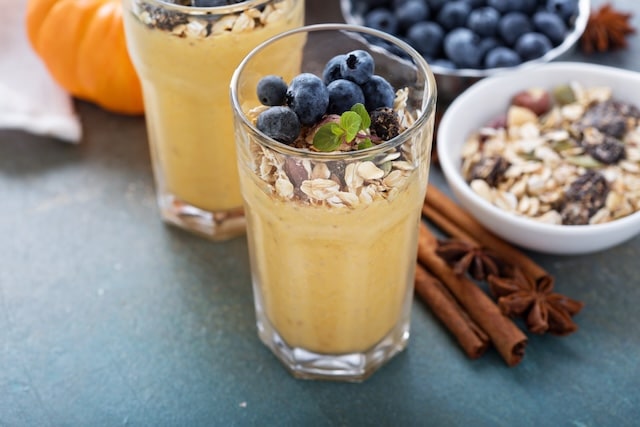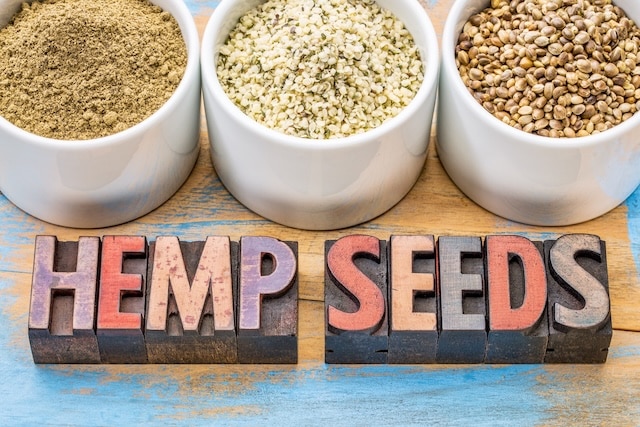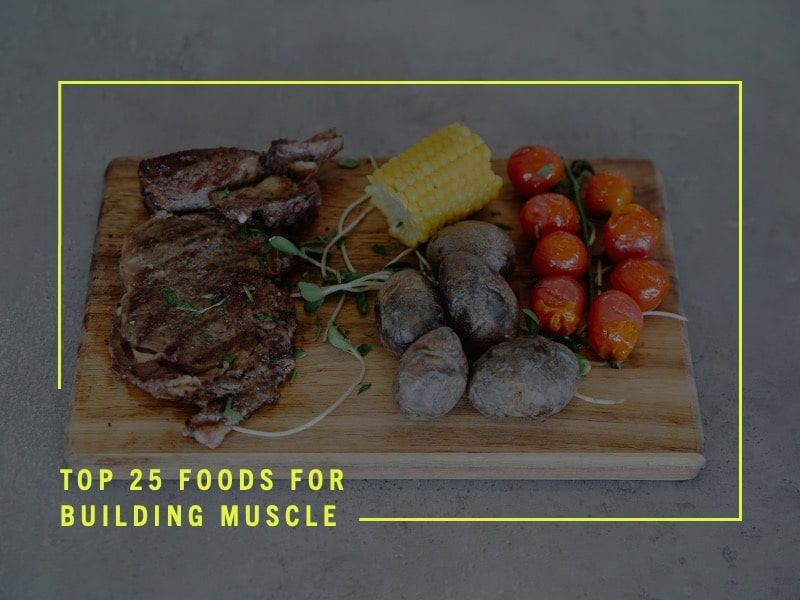Top 25 Muscle-Building Foods to Maximize Growth (and worst!)
Building muscle is not just about lifting weights; it requires a strategic approach to nutrition as well. While protein is the key macronutrient for muscle repair and growth, it’s equally important to focus on nutrient-dense foods that provide essential vitamins, minerals, and healthy fats.
These nutrients support overall muscle function, recovery, and performance, giving your body the fuel it needs to optimize your workouts.
The following list of the 25 best muscle-building foods is carefully curated based on their high protein bioavailability, meaning they provide easily absorbable protein, and their overall nutritional value.
By incorporating these foods into your diet, you can ensure that each meal contributes to your strength, recovery, and muscle-building goals, helping you get the most out of every training session.
Most Important Macro & Micronutrients for Building Muscle

Muscle building requires a balance of macronutrients (protein, carbs, and fats) and key micronutrients. Each plays a role in muscle growth and recovery.
- Protein: Essential for muscle repair and growth. Aim for 1.6-2.2g of protein per kg of body weight to build muscle.
- Carbohydrates: Fuel workouts and replenish glycogen. Prioritize complex carbs like whole grains and fruits.
- Fats: Support hormone production, particularly testosterone, aiding muscle growth. Focus on healthy fats like avocados and nuts.
Micronutrients like vitamin D, magnesium, and zinc are equally important for muscle function and recovery.
- Vitamin D: Supports muscle strength and calcium absorption.
- Magnesium: Aids in muscle relaxation and reduces cramps.
- Zinc: Zinc and zinc-rich foods are essential for protein synthesis and testosterone production.
Top 25 Muscle Building Foods
When it comes to building muscle, it’s not just about how much protein you consume but also the quality and bioavailability of that protein. Bioavailable protein refers to how easily your body can absorb and utilize the protein from various food sources, directly impacting your muscle growth and recovery.
However, protein isn’t the only factor—nutrient-dense foods provide vitamins, minerals, and healthy fats that play critical roles in optimizing muscle function, reducing inflammation, and supporting overall health.
The following 25 foods offer the best combination of bioavailable protein and essential nutrients, making them powerful allies in your muscle-building journey. Incorporating these into your diet ensures you’re fueling your body efficiently for performance, growth, and recovery.
1.) Eggs

Eggs are one of the highest-quality protein sources available, containing all nine essential amino acids. With a bioavailability score of nearly 100, your body efficiently absorbs and uses the protein in eggs. Additionally, eggs provide vitamins B12 and D, which are crucial for muscle function and recovery.
2.) Protein powder
Although whey protein is the best option for muscle growth and recovery, vegan protein powders offer comparable benefits and are often tolerated better.
Whey protein is a fast-digesting, complete protein with a very high biological value and is an excellent choice to help speed up muscle recovery and growth after a workout. Whey protein is also rich in leucine, an amino acid that plays a crucial role in muscle protein synthesis.
My favorite protein powder for building muscle is Garden of Life Protein and Greens:
Last update on 2025-07-14 / This article includes affiliate links/Images via Amazon Product Advertising API. I may earn commissions on purchases made through these links.
3.) Chicken Breast
Chicken breast is a lean protein source, low in fat and packed with bioavailable protein. It contains about 31 grams of protein per 100 grams, making it an ideal option for muscle building. The low-fat content helps you gain muscle without excess fat.
4.) Lean Beef
Lean beef provides high-quality protein and essential nutrients like iron and zinc, both of which support muscle recovery and performance. Beef also contains creatine, a compound that boosts strength and energy during resistance training.
5.) Salmon
Salmon offers not only high-quality protein but also omega-3 fatty acids, which reduce muscle inflammation and improve recovery.
With about 25 grams of protein per 100 grams, salmon is a great addition to your muscle-building diet, promoting both muscle growth and heart health.
6.) Greek Yogurt
Greek yogurt is rich in both casein and whey protein, offering a combination of fast and slow-digesting proteins, making it an excellent option to help build muscle on a vegetarian diet. It’s also packed with calcium, which supports bone health and muscle function.
7.) Cottage Cheese
Cottage cheese is another excellent source of casein protein, providing a slow-release of amino acids, perfect for overnight muscle recovery. It also contains beneficial nutrients like calcium and vitamin B12.
8.) Tuna
Tuna is a lean fish with about 30 grams of protein per can, making it a convenient and nutrient-rich choice for building muscle. It’s also rich in omega-3 fatty acids, supporting both muscle growth and overall health.
9.) Turkey Breast
Turkey breast is a low-fat, high-protein food that provides about 29 grams of protein per 100 grams. It is also a great source of selenium, which supports immune function and helps reduce muscle inflammation.
10.) Shrimp
Shrimp are an excellent source of lean protein, with about 24 grams per 100 grams and very little fat.
Their high protein-to-calorie ratio makes them a fantastic option for muscle building without gaining excess fat.
11.) Pork Tenderloin
Pork tenderloin is a lean cut of meat that offers 22 grams of protein per 100 grams. It is also packed with essential B vitamins, which help convert food into energy and support muscle repair.
12.) Hemp Seeds

Hemp seeds are one of the best plant-based sources of complete protein, providing all essential amino acids. With about 10 grams of protein per 3 tablespoons, they are also rich in omega-3s, which help reduce inflammation and improve muscle recovery.
13.) Quinoa
Quinoa is a plant-based complete protein that contains all essential amino acids. It’s also rich in fiber, magnesium, and iron, making it a nutrient-dense carbohydrate source that complements muscle growth.
14.) Tofu
Tofu is a versatile, plant-based protein source offering 8 grams of protein per 100 grams. It contains all essential amino acids and is a great option for vegetarians and vegans looking to build muscle.
15.) Tempeh
Tempeh is a fermented soy product that provides 19 grams of protein per 100 grams. Its fermentation process improves digestion and enhances nutrient absorption, making it an excellent plant-based protein choice.
16.) Edamame
Edamame, or young soybeans, are packed with 11 grams of protein per 100 grams. They are a complete protein source, making them an ideal snack or addition to meals for muscle growth.
17.) Lentils
Lentils are a great plant-based protein source with about 18 grams of protein per cup. They are also rich in fiber, iron, and magnesium, which support muscle recovery and energy production.
18.) Chickpeas
Chickpeas provide 15 grams of protein per cup and are rich in fiber and complex carbohydrates, offering sustained energy for workouts. They are also a great source of vitamins and minerals essential for muscle repair.
19.) Almonds
Almonds are rich in healthy fats and protein, offering about 6 grams per ounce. While their protein is not as bioavailable as animal sources, they are packed with magnesium and vitamin E, which support muscle function and recovery.
20.) Peanut Butter
Peanut butter is a calorie-dense source of protein, providing 8 grams of protein per 2 tablespoons.
It also contains healthy fats and vitamin E, making it a convenient and delicious addition to muscle-building diets.
21.) Pumpkin Seeds

Pumpkin seeds offer about 7 grams of protein per ounce, along with essential nutrients like magnesium and zinc. These nutrients help with muscle repair and support healthy immune function, critical for recovery.
22.) Chia Seeds
Chia seeds provide about 5 grams of protein per 2 tablespoons and are rich in omega-3 fatty acids. While their protein content is moderate, chia seeds offer excellent hydration support and help reduce inflammation, both of which aid muscle recovery.
23.) Brown Rice
Brown rice is a nutrient-dense carbohydrate source that contains about 5 grams of protein per cup. Its complex carbs provide sustained energy for workouts, while its fiber content supports digestion.
24.) Oats
Oats offer a good amount of protein (about 6 grams per cup) and are an excellent source of complex carbohydrates. Oats are one of the best carbs for bodybuilders and those who want to build muscle because they help sustain energy during workouts and provide fiber, vitamins, and minerals to support overall health.
25.) Sweet Potatoes
Sweet potatoes are rich in complex carbohydrates and provide a small amount of protein. They are a great source of energy and contain vitamins A and C, which support muscle recovery and overall health.
5 Worst Foods for Building Muscle
These five foods are the worst choices for building muscle because they lack essential nutrients, provide low-quality protein, and can hinder muscle recovery and growth:
- Sugary Snacks and Sweets
High in refined sugars and low in protein, sugary snacks provide empty calories without supporting muscle growth. They can also lead to energy crashes, impairing workout performance. - Processed Fast Food
Fast food is often high in unhealthy fats, sodium, and low-quality protein. These foods can cause inflammation, delay muscle recovery, and contribute to weight gain without supporting lean muscle mass. - Alcohol
Excessive alcohol consumption impairs protein synthesis and recovery while depleting your body of essential nutrients like B vitamins and zinc, which are crucial for muscle growth. Drinking red wine at night in moderation is likely your best option if you want to build muscle but still drink alcohol. - Soda and Sugary Drinks
These beverages are loaded with sugar but offer zero nutritional value. They contribute to fat gain without supporting muscle recovery or providing energy for workouts. - Deep-Fried Foods
Fried foods are high in unhealthy trans fats, which promote inflammation and slow recovery. They also offer minimal protein and can lead to weight gain, hindering muscle definition.
Advantages of Choosing Nutrient-Dense Foods for Muscle Building
Nutrient-dense foods like those listed above offer more than just protein—they provide essential vitamins, minerals, and healthy fats that support overall health and muscle recovery.
For example, omega-3-rich foods like salmon and chia seeds reduce inflammation, while foods like lean beef and almonds are packed with muscle-supporting nutrients like iron, magnesium, and zinc.
By choosing these foods, you’re not only meeting your protein needs but also ensuring your body has the nutrients it needs to recover and build muscle optimally.
These muscle-building foods are key to a well-rounded diet that supports muscle growth, strength, and overall health. Combining these foods with consistent resistance training and proper recovery will help you achieve your fitness goals effectively.
This website does not provide medical advice. This website site does contain affiliate links, and purchases may earn a commission.
Read my Medical Disclaimer, Review Disclaimer, and Publishing Policies for more details. Use of this site indicates acceptance of these terms.




